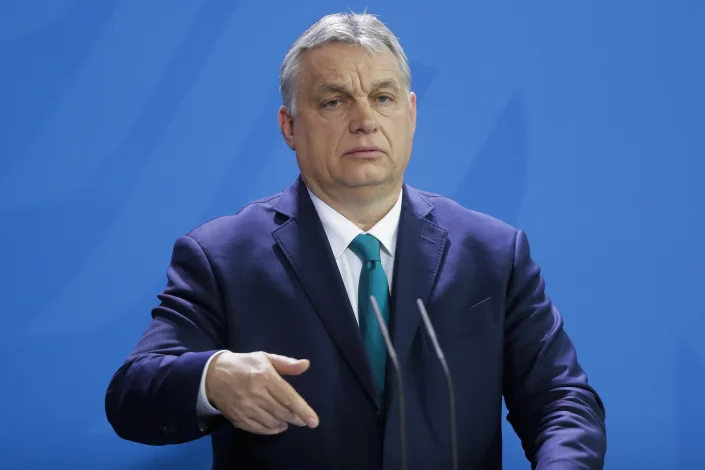Hungary pressures EU by delaying Finland, Sweden NATO vote

After Russia invaded Ukraine in February 2022, Sweden and Finland dropped their longstanding military neutrality and quickly signaled their intentions to join NATO, in a striking sign of how powerful Europe’s security fears had become in the shadow of Moscow’s war.
But nearly a year after the Nordic countries officially applied to join the military alliance, their admission remains unresolved because two of the 30 NATO members — Turkey and Hungary — still haven’t approved their bids.
Although Turkish President Recep Tayyip Erdogan has repeatedly raised specific objections to the countries — especially Sweden — joining NATO, Hungary’s populist prime minister, Viktor Orban, has long signaled that his country’s support for expansion and has repeatedly promised its parliament would soon vote to ratify.
“We have already confirmed to both Finland and Sweden that Hungary supports” their NATO bids, Orban said at a meeting of Central European prime ministers last November. “The Swedes and the Finns have not lost a single minute of membership because of Hungary, and Hungary will certainly give them the support they need to join.”
But a succession of delays by Hungary’s government — and its shifting justifications in explaining them — have caused frustration and worry in Sweden, Finland and beyond, and raised questions over what Hungary hopes to achieve through them.
Daniel Hegedus, an analyst and fellow for Central Europe at the German Marshall Fund, a think tank that seeks to promote cooperation between North America and the European Union, said that at the heart of Hungary’s intransigence on NATO expansion is its desire to exert leverage on the EU, which has frozen billions in funds to Budapest over corruption and rule-of-law concerns.
Hungary’s hope, Hegedus said, “is that by playing with this postponement of the voting, they can push the Swedes and the Finns to support a potential release of the Hungarian funds in April, or at least make these countries not vocally critical.”







